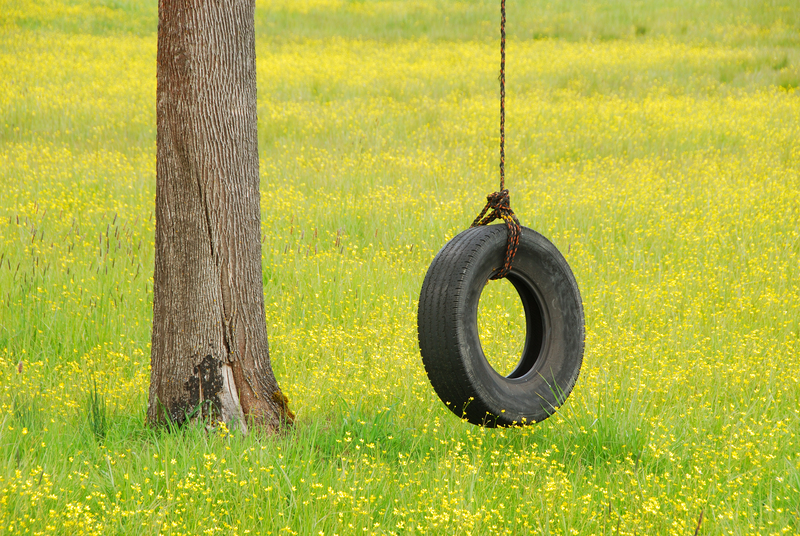As the world becomes more environmentally conscious, minimizing green waste is a crucial step toward sustainable living. Green waste, which primarily consists of garden and kitchen waste, significantly contributes to landfill issues if not managed properly. In this article, we'll explore ten innovative methods to reduce your green waste footprint efficiently. Let's dive into these practical solutions that promote environmental stewardship.
1. Composting at Home
Composting is one of the most effective methods of recycling organic waste. By converting your kitchen scraps and yard trimmings into nutrient-rich compost, you create a natural fertilizer that can enrich your home's garden.
- Start a compost bin or pile in your backyard or kitchen.
- Include items like vegetable scraps, fruit peels, grass clippings, and leaves.
- Avoid meat, dairy, and synthetic products to prevent odor and pests.
- Maintain a balance of 'green' (nitrogen-rich) and 'brown' (carbon-rich) materials.
An efficient composting system can reduce your waste contribution significantly while providing free resources for your garden.

2. Implement Bokashi Bins
Traditional composting not your thing? That's where Bokashi bins come into play. This method involves fermenting organic waste using a special microbial mix.
- Bokashi bins can handle meat and dairy waste.
- The process is faster and can be carried out indoors, making it ideal for apartment dwellers.
- Once the fermentation is complete, bury the waste in your garden to decompose naturally.
This method not only reduces landfill-bound waste but also enriches your soil over time.
3. Embrace Vermicomposting
For those who are particularly adventurous, vermicomposting involves using worms to break down food waste into high-quality compost known as worm castings.
- Red worms or earthworms are excellent for vermicomposting.
- Set up a vermicomposting bin under your sink or in your garage.
- Feed the worms with organic kitchen waste, avoiding acidic or oily food.
Worm castings are incredibly rich in nutrients, making them excellent for plant growth and soil health.
4. Practice Grasscycling
Did you know you can turn your lawn clippings into a valuable resource by simply leaving them where they fall? This practice is known as grasscycling.
- After mowing, leave the grass clippings on the lawn; they decompose quickly.
- This process returns essential nutrients to the soil and reduces the need for fertilizers.
- Ensure to mow regularly to avoid over-clumping.
By practicing grasscycling, you reduce waste and promote healthier lawns naturally.
5. Use a Food Dehydrator
Minimize kitchen waste by investing in a food dehydrator. This tool helps to preserve seasonal surplus effectively.
- Dry fruits, vegetables, and herbs to extend their shelf life.
- Store dehydrated foods in airtight containers for best results.
- Create homemade snacks to enhance your diet and reduce store-bought packaged snacks.
Food dehydration helps in utilizing surplus produce and prevents wastage.
6. Start a Community Garden
Community gardening encourages collaboration while reducing waste. It also fosters sustainable practices and knowledge sharing.
- Set up garden plots for residents to plant and harvest.
- Organize workshops on composting and organic gardening.
- Share surplus produce with community members to prevent spoilage.
Such initiatives promote resource sharing, waste reduction, and community bonds.
7. Create a No-Dig Garden
No-dig gardening is an effective way to recycle green waste directly into your garden beds.
- Layer cardboard and organic waste like grass clippings and shredded leaves.
- Cover layers with soil or compost and plant directly on top.
- This method improves soil structure and fertility over time.
No-dig gardening minimizes disturbance, encouraging vital soil organisms to thrive.
8. Establish a Mulching Routine
Mulching is a fantastic way to reuse garden waste while enhancing soil health.
- Use shredded leaves, bark, or grass clippings as mulch around your plants.
- Conserve water by reducing soil evaporation.
- Suppress weed growth naturally, minimizing chemical use.
By mulching, you recycle green waste and maintain a more resilient garden ecosystem.
9. Conduct Regular Waste Audits
To effectively minimize green waste, regularly auditing your waste can offer surprising insights into waste reduction opportunities.
- Track and analyze the waste generated weekly or monthly.
- Identify areas where waste can be reduced, such as meal planning to minimize food scraps.
- Set actionable goals based on audit findings to continually reduce your green waste footprint.
Waste audits help in determining practices that need improvement to achieve a sustainable lifestyle.

10. Support Local Composting Initiatives
If home composting isn't possible for you, consider supporting local composting initiatives.
- Participate in curbside composting programs if available in your area.
- Contribute kitchen scraps to community compost bins.
- Educate friends and family about composting benefits and initiatives.
By supporting these programs, you contribute to larger waste reduction efforts while fostering community sustainability.
Conclusion
Minimizing green waste is not only beneficial for the environment but also enhances your home and community's ecological health. By adopting these creative methods, you play a vital role in promoting sustainability and conserving resources. Choose the methods that suit your lifestyle and become a part of the green revolution!
The future of our planet depends on sensible waste management practices. It starts with conscious efforts at individual, community, and societal levels. Let's commit to reducing green waste and contributing to a greener world.